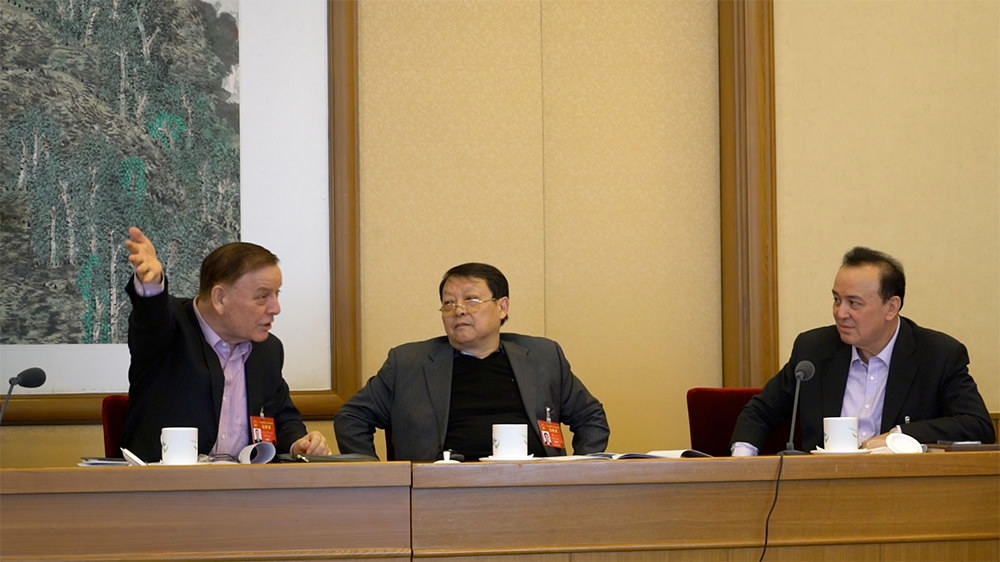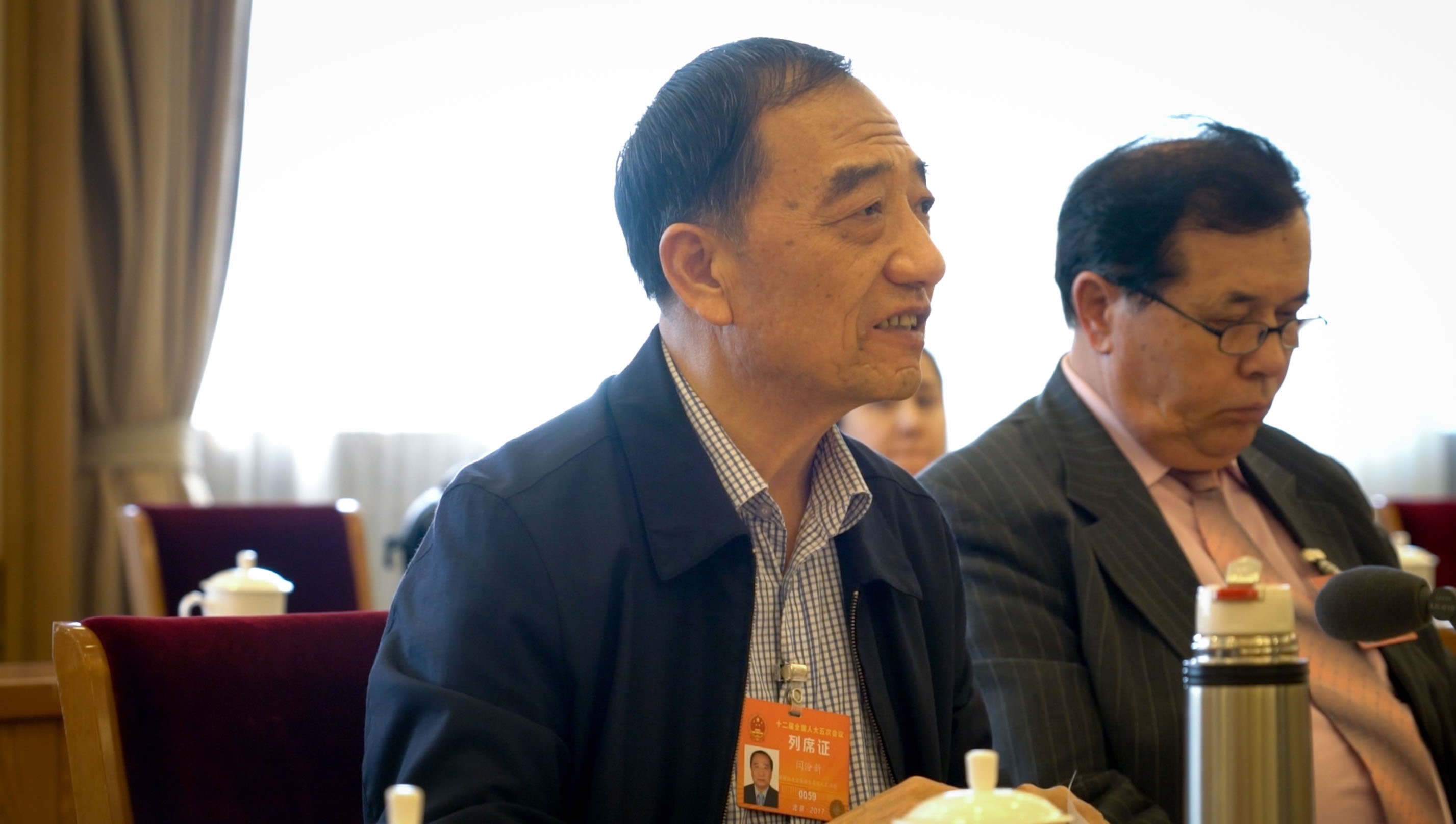
Politics
18:10, 11-Mar-2017
Problem in Xinjiang's courts is too few hands for too much work: judge
Updated
11:01, 28-Jun-2018

By CGTN's Wang Mingyan and Tian Yi
Criminal cases in Xinjiang Uygur Autonomous Region account for a small share of judicial cases handled by courts there.
Most cases are civil in nature, and this indicates a stable society in the region. This is according to Judge Yan Fenxin, vice president of the Higher People’s Court in Xinjiang Uygur Autonomous Region, who spoke at a panel discussion with the Xinjiang delegation during the Two Sessions political meetings Thursday in Beijing.
Judge Yan said of the 528,000 judicial cases handled in the autonomous region last year, criminal cases took up less than 9 percent. Other cases were mainly about economic disputes and family disputes. The rate of criminal cases has been under 10 percent in recent years, Yan said, except in 2014, when it was at 10 percent.

Yan Fenxin, judge and vice president of Higher People’s Court in Xinjiang Uygur Autonomous Region /CGTN Photo
Yan Fenxin, judge and vice president of Higher People’s Court in Xinjiang Uygur Autonomous Region /CGTN Photo
Yan also spotlighted a major problem that the Xinjiang courts are facing, which is lack of court personnel compared to the increasing number of cases. According to Yan, there are about 3,400 judges in different levels in Xinjiang, who are dealing with more than 520,000 cases. Each judge on average last year handled about 120 cases, and for bigger cities, like the capital Urumqi for example, judges working there handled some 200 cases.
“The courts lack enough working hands and have much pressure in dealing with the cases,” Yan said in the meeting.

Panel discussion by the Xinjiang delegation in on March 9, 2017 /CGTN Photo
Panel discussion by the Xinjiang delegation in on March 9, 2017 /CGTN Photo
The Two Sessions period in China is a time for delegations from across the country to discuss local and national problems that need to be solved by joint efforts. The panel discussion by the Xinjiang delegation on Thursday hit on a wide range of topics.
On Friday, President Xi Jinping also participated in the panel discussion with lawmakers from Xinjiang, during which the president stressed that maintaining stability in Xinjiang is a political responsibility, and that stability-related issues must be handled in a thorough, timely and proper manner.
8km

SITEMAP
Copyright © 2018 CGTN. Beijing ICP prepared NO.16065310-3
Copyright © 2018 CGTN. Beijing ICP prepared NO.16065310-3